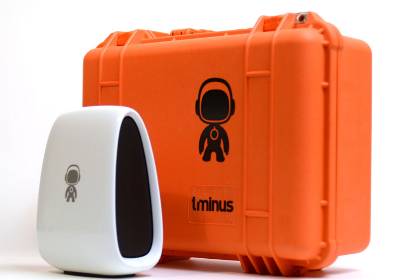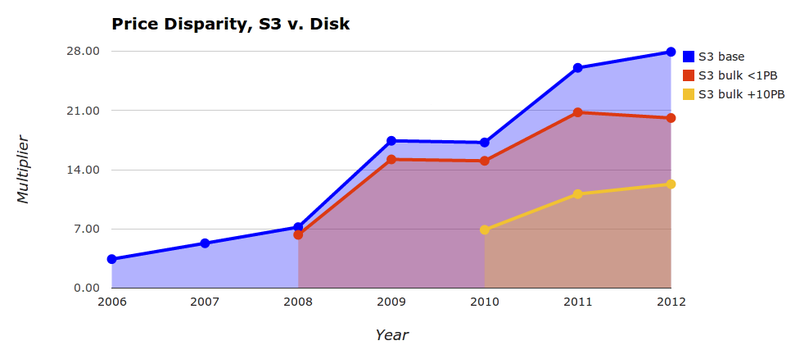Startup Space Monkey offers 1 Terabyte in the cloud for $ 10 per month
 This is 20 times cheaper than taking Dropbox. The secret of SpaceMonkey is that instead of centralized data centers they will use a P2P network consisting of small “bricks”, each of which contains a hard disk and a network interface. Such a "brick" can be put at home or in the office and connected to the local network. Part of the disk is occupied by local copies of all your files - so even in the absence of the Internet, you can continue to work, and the remaining space is used to store other users' data. All data is encrypted and broken into small fragments, so storing sensitive information in such a cloud is completely safe.
This is 20 times cheaper than taking Dropbox. The secret of SpaceMonkey is that instead of centralized data centers they will use a P2P network consisting of small “bricks”, each of which contains a hard disk and a network interface. Such a "brick" can be put at home or in the office and connected to the local network. Part of the disk is occupied by local copies of all your files - so even in the absence of the Internet, you can continue to work, and the remaining space is used to store other users' data. All data is encrypted and broken into small fragments, so storing sensitive information in such a cloud is completely safe.The launch of the service is scheduled for this summer, pre-ordering can be done right now. Since Space Monkey's cloud resembles the BitTorrent network, for its success it is important to quickly gain a critical mass of users so that the P2P network becomes fast enough and reliable. If this stage is successful, Space Monkey cloud is quite able to compete with traditional data centers. The startup website provides a graph showing how much more expensive it costs to store 1 Terabyte of data in a regular cloud (using S3 as an example), compared to buying a terabyte hard drive.

Space Monkey offers something between these two extremes. They have no overhead costs associated with maintaining the infrastructure of a large data center, and their solution promises to be much more reliable than just a hard disk.
Space Monkey is not the first attempt to use each user's disk space as part of a cloud, for example, the Wuala service allowed allocating some space on the disk to store other people's data in exchange for increasing the available space in the cloud, but recently they refused it, remaining the usual centralized cloud storage. Space Monkey approached this problem from the other end and simply began to offer to buy or rent a hard drive along with storage services. Simple and ingenious!
')
Source: https://habr.com/ru/post/139653/
All Articles